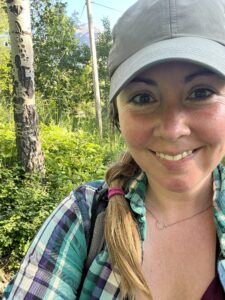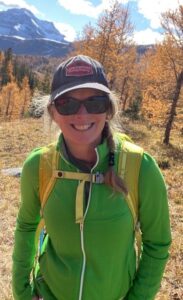Conservation Strategy - Goal 3
GOAL 3: CDFCP capacity to deliver the above goals is enhanced and sustained.
OBJECTIVE 3 . 1 : Secure adequate and ongoing funding and support for CDFCP staffing and programs.
OBJECTIVE 3 . 2 : Monitor and report on the status CDFAE and related natural capital assets.
.

Photo by Adam Taylor
Current Staff
The CDFCP currently has funding from ECCC through the Nature Smart Climate Solutions (NSCS) Fund as well as The Priority Places for Species at Risk Fund via Canada’s Nature Fund. These funds provides the salary for the Program Manager.
The focus of the NSCS project is to develop a framework of policy, tools and incentives that would support First Nations and Local Governments with the protection, enhancement and creation of Nature Based Solutions to respond to climate change and enable biodiversity gains. Key work areas currently include;
- Working with UBC Botanical Gardens on the development of a Climate Adaptation Tool called Action For Adaptation, which includes a Biodiversity Atlas.
- Developing a methodology for the integration of land use change into municipal greenhouse gas inventories.
- Exploring the potential for a regional carbon offsetting program for small
landholders. - Exploring financial incentives for private landowners to maintain nature-based solutions.
Through Priority Places, the Program Manager also supports a multi-stakeholder Steering Committee with the operations of the partnership. This will vary year to year but includes:
- Coordination of the Steering Committee and working groups
- Supporting implementation and update of the CDFCP Conservation
Strategy, Regional Biodiversity Atlas and Climate Adaptation Plan and
other priorities identified under the Priority Places and Nature Smart
Climate Solutions Funds - Engage local governments with the CDFCP Local Government Conservation Planning Guide
- Production of the CDFCP eNewsletter
- Supporting the development of the annual webinar series

CDFCP Program Manager – Stephanie Woods
Stephanie (BSc, MSEM) lives and works in community on the unceded traditional territories of the Lək̓ʷəŋən-speaking peoples of the Esquimalt and Songhees First Nations. With 15 years in conservation, she has worked with organizations such as Parks Canada, the Invasive Species Council of BC, the City of Victoria and CPAWS Yukon. Her expertise includes parks and protected areas management, ecological integrity and species-at-risk monitoring, innovative restoration practices (including invasive species management), supporting Indigenous stewardship and fostering public behavior change through strategic initiatives.
She is committed to ongoing (un)learning and growth, actively working toward holistic and inclusive conservation by supporting diverse ways of knowing.

CDFCP Contractor – Kelly Chapman
Kelly Chapman Ph.D., R.P.Bio. is an ecologist and an environmental planner with 30 years experience working with government, First Nations and NGOs on biodiversity conservation. She has worked with species and ecosystems at risk in some of the most biologically diverse landscapes in Canada and the world, including the Okanagan’s semi-desert grasslands, West Africa’s Guinean rainforests, and Australia’s southwest eco-region. For her PhD research she explored how complexity theory can be used to help untangle ‘wicked’ environmental problems. Kelly is currently working on nature-based climate change adaptation for BC’s south coast.
